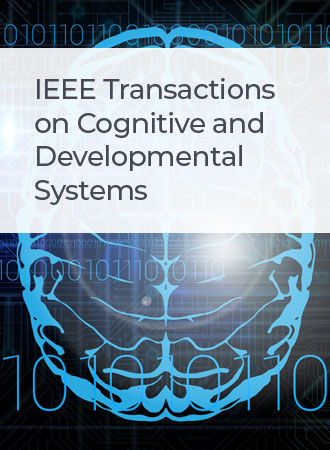Enhancing Dimensional Image Emotion Detection With a Low-Resource Dataset via Two-Stage Training
IF 4.9
3区 计算机科学
Q1 COMPUTER SCIENCE, ARTIFICIAL INTELLIGENCE
IEEE Transactions on Cognitive and Developmental Systems
Pub Date : 2024-09-23
DOI:10.1109/TCDS.2024.3465602
引用次数: 0
Abstract
Image emotion analysis has gained notable attention owing to the growing importance of computationally modeling human emotions. Most previous studies have focused on classifying the feelings evoked by an image into predefined emotion categories. Compared with these categorical approaches which cannot address the ambiguity and complexity of human emotions, recent studies have taken dimensional approaches to address these problems. However, there is still a limitation in that the number of dimensional datasets is significantly smaller for model training, compared with many available categorical datasets. We propose four types of frameworks that use categorical datasets to predict emotion values for a given image in the valence–arousal (VA) space. Specifically, our proposed framework is trained to predict continuous emotion values under the supervision of categorical labels. Extensive experiments demonstrate that our approach showed a positive correlation with the actual VA values of the dimensional dataset. In addition, our framework improves further when a small number of dimensional datasets are available for the fine-tuning process.基于两阶段训练的低资源数据集增强多维图像情感检测
由于人类情感的计算建模越来越重要,图像情感分析得到了显著的关注。大多数先前的研究都集中在将图像所唤起的感觉分类为预定义的情感类别。与这些分类方法无法解决人类情感的模糊性和复杂性相比,最近的研究采用了维度方法来解决这些问题。然而,与许多可用的分类数据集相比,用于模型训练的维度数据集的数量明显更少,这仍然是一个限制。我们提出了四种类型的框架,它们使用分类数据集来预测给定图像在价-觉醒(VA)空间中的情感值。具体来说,我们提出的框架被训练成在分类标签的监督下预测连续的情感值。大量的实验表明,我们的方法与维度数据集的实际VA值呈正相关。此外,当少量维度数据集可用于微调过程时,我们的框架会进一步改进。
本文章由计算机程序翻译,如有差异,请以英文原文为准。
求助全文
约1分钟内获得全文
求助全文
来源期刊

IEEE Transactions on Cognitive and Developmental Systems
Computer Science-Software
CiteScore
7.20
自引率
10.00%
发文量
170
期刊介绍:
The IEEE Transactions on Cognitive and Developmental Systems (TCDS) focuses on advances in the study of development and cognition in natural (humans, animals) and artificial (robots, agents) systems. It welcomes contributions from multiple related disciplines including cognitive systems, cognitive robotics, developmental and epigenetic robotics, autonomous and evolutionary robotics, social structures, multi-agent and artificial life systems, computational neuroscience, and developmental psychology. Articles on theoretical, computational, application-oriented, and experimental studies as well as reviews in these areas are considered.
 求助内容:
求助内容: 应助结果提醒方式:
应助结果提醒方式:


